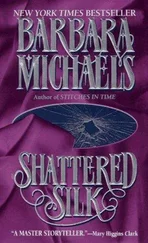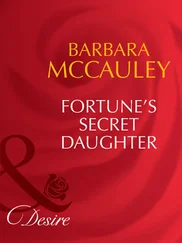Barbara Michaels - The Wizard’s Daughter
Здесь есть возможность читать онлайн «Barbara Michaels - The Wizard’s Daughter» весь текст электронной книги совершенно бесплатно (целиком полную версию без сокращений). В некоторых случаях можно слушать аудио, скачать через торрент в формате fb2 и присутствует краткое содержание. Жанр: Детектив, на английском языке. Описание произведения, (предисловие) а так же отзывы посетителей доступны на портале библиотеки ЛибКат.
- Название:The Wizard’s Daughter
- Автор:
- Жанр:
- Год:неизвестен
- ISBN:нет данных
- Рейтинг книги:4 / 5. Голосов: 1
-
Избранное:Добавить в избранное
- Отзывы:
-
Ваша оценка:
- 80
- 1
- 2
- 3
- 4
- 5
The Wizard’s Daughter: краткое содержание, описание и аннотация
Предлагаем к чтению аннотацию, описание, краткое содержание или предисловие (зависит от того, что написал сам автор книги «The Wizard’s Daughter»). Если вы не нашли необходимую информацию о книге — напишите в комментариях, мы постараемся отыскать её.
The Wizard’s Daughter — читать онлайн бесплатно полную книгу (весь текст) целиком
Ниже представлен текст книги, разбитый по страницам. Система сохранения места последней прочитанной страницы, позволяет с удобством читать онлайн бесплатно книгу «The Wizard’s Daughter», без необходимости каждый раз заново искать на чём Вы остановились. Поставьте закладку, и сможете в любой момент перейти на страницу, на которой закончили чтение.
Интервал:
Закладка:
"No, my dear, you are quite right."
"Then I beg of you, leave the girl in peace! I have given her a mild sleeping draft; she will probably not wake until tomorrow morning. I propose to perform the same service for you. The excitement is very bad for you, Honoria, very bad indeed."
"I am a little tired," the Duchess admitted. "But very happy, Horace; very happy."
"All the same, you need rest. Please go to your room and lie down. I will come to see you shortly."
"Only let me call her maid."
"I will do that when I have made sure she is sleeping. Promise me one more thing,
Honoria." "What?"
"No more of these experiments." "You know I cannot promise that." The doctor sighed. "Then promise you will do nothing without my prior approval.
If you care nothing for your own health, you have no right to risk the health of Miss Ransom."
This appeal had the desired effect. The Duchess murmured an agreement. Marianne felt a light hand brush her forehead, but she kept her eyes obstinately closed.
After the Duchess had gone out, Carlton said, "Is she asleep?"
A finger lifted Marianne's eyelid. An alarming sight confronted her: the doctor's face three inches from hers, every vein and wrinkle and grizzled hair magnified by proximity into a caricature of late middle age. Still determined to remain unresponsive, she managed not to resist his touch, or change her expression, and after a moment the inquiring finger was removed. Marianne was aware of the faint odors of tobacco, bay rum, and brandy. She had never before been so conscious of her sense of smell and was, in this case, unable to analyze the constituent elements or understand why she suddenly felt more at ease. These odors were, in fact, the ones she unconsciously associated with her father. In the Squire's case they were usually overlaid with a stronger smell of horse; but even in this diluted form they were obscurely comforting.
The doctor answered Carlton's question. "No, she is not asleep."
"Just as I thought!"
"Keep your voice down. In fact, you had better go."
"When you do."
"Good Gad, man, do you suppose the young woman requires a chaperone? I will stay until she drops off. I prefer not to leave her until I am certain she has no adverse reaction to the medicine I have given her. I know nothing of her medical history."
"But I want to talk to you."
"Do so, then. She cannot hear us if we keep our voices down."
Marianne felt a childish surge of triumph. She had not fooled the doctor with her pretense of unconsciousness, but he had underestimated the keenness of her hearing. She listened with all her might.
"I can't understand your coolness," the lawyer exclaimed. "We must rid the house of this – this conniving female instantly."
"Impossible."
"But she is -"
"I don't know who, or what, she is," the doctor interrupted. "And neither do you. I do know that even if we could evict her the effect on the Duchess might be disastrous. You hotheaded young fellows make me tired. Your legal training ought to have made you more circumspect."
"She is a cold, calculating imposter," the lawyer insisted. "I admit I had my doubts; but after that bit of legerdemain -"
"That is certainly one explanation of what occurred."
"What other explanation can there be?"
In his irritation the doctor forgot his own injunction to speak softly. "I can think of several. Assuming that the girl is innocent of deliberate trickery – no, no, hear me out! Consider the room itself. Holmes was accustomed to use it for his performances whenever he stayed with Honoria; who knows what devices he may have installed, unknown to her? That crystalline bust normally stands on the mantel. How it traveled from there to the table I cannot explain; but at least we can be sure it did not come from the spirit world."
"I am relieved to hear you admit it. You used to be the most outspoken skeptic -"
"And still am, I assure you. Spiritualism is a wicked, dangerous business. But the Duchess is not a skeptic, and it is her belief we must contend with. Only consider, young Roger, what one of the alternative explanations must be, and do not press me, I beg, to voice it aloud."
The silence that followed was so fraught with emotion that Marianne could almost feel it. She had no idea what the doctor meant; the drug he had given her was taking effect, and she was increasingly drowsy. But Carlton apparently did understand. After a moment he said, in tones of the most lively consternation, "You can't be serious."
"Only too serious. I tell you, we must proceed with caution. The health of our dear old friend must be our chief concern. Please allow me to be the judge of what is best for her."
"I must do so," the lawyer muttered. "But don't expect me to be civil to the wench."
"You needn't be civil, but if you speak of her in such terms to the Duchess, you will find yourself evicted from the house," was the doctor's dry response. "Be off with you now."
The lawyer's reply was unintelligible. Marianne felt as if she were being wrapped in blankets of soft wool, layer upon layer upon layer. Gradually hearing and touch were muffled; she could not have lifted her heavy lids if she had wanted to. Just as she was entering into the final failure of all sensation she seemed to hear a voice echo inside her head. "David," it said, and, "Father." Her lips shaped the words – and others – as she drifted away.
The following days were the happiest Marianne had known since her father's death. As in a fairy tale, she had been transformed from an impoverished orphan into the petted, pampered darling of a lady who possessed every possible charm – kindness, noble birth, and immense wealth. At first the girl objected when the Duchess showered her with gifts. The Duchess's reply was, "I am an old woman, my dear. Will you deprive me of what has become my chief pleasure in life?"
There was no possible reply to this but grateful acceptance. After all, Marianne told herself, even if the fairy tale ended like Cinderella's, on the stroke of some symbolic midnight, she would be no worse off than before. In this she was, of course, mistaken, but she was too inexperienced to know that the removal of luxury can be worse than the absence of that commodity, and even if she had known it she probably would not have had the strength of will to resist.
Her room was a bower of every pretty comfort money could buy. Delicate hothouse flowers filled the vases and were replenished daily. The sheets on the bed were of pale-pink silk, the toilet articles were backed with solid gold. Jars of steaming bathwater were hauled upstairs every evening by panting chambermaids – but of course Marianne never saw these unfortunates; the maid who attended her was a smart young Frenchwoman whose hands dealt magically with her luxuriant hair. Every evening she was bathed and dressed in one of her lovely new gowns; her hair was twisted with ribbons and posies, her throat and wrists hung with jewels. The only unpleasant part of this process was that she had to have her ears pierced. The squire had never thought of such a thing, and Mrs. Jay had not approved of vain adornment, so this operation had been neglected. But it was worth the pain to look forward to wearing the pearl and diamond and opal earrings the Duchess had given her.
One evening, several days after her arrival, she was seated before the fire wrapped in a dressing gown of pale-blue satin trimmed with feathers. Celeste, her maid, moved noiselessly around the room laying out the clothing she would presently put on. The gown was the most elaborate she had yet worn, voluminous folds of snowy tulle over a petticoat of heavy blue silk. A cascade of silk flowers fell from one shoulder across the front of the gown and down one side of the overskirt, which was drawn back in graceful folds over a soft bustle. Marianne's hair had been secured atop her head with a wreath of matching flowers; the skillfully arranged curls cascaded down her back. With this garment went long white gloves, a lace fan, and a parure of seed pearls. They were going to the opera. The Duchess had hailed Marianne's love of music as another proof of her parentage: "David was so sensitive to music!"
Читать дальшеИнтервал:
Закладка:
Похожие книги на «The Wizard’s Daughter»
Представляем Вашему вниманию похожие книги на «The Wizard’s Daughter» списком для выбора. Мы отобрали схожую по названию и смыслу литературу в надежде предоставить читателям больше вариантов отыскать новые, интересные, ещё непрочитанные произведения.
Обсуждение, отзывы о книге «The Wizard’s Daughter» и просто собственные мнения читателей. Оставьте ваши комментарии, напишите, что Вы думаете о произведении, его смысле или главных героях. Укажите что конкретно понравилось, а что нет, и почему Вы так считаете.












